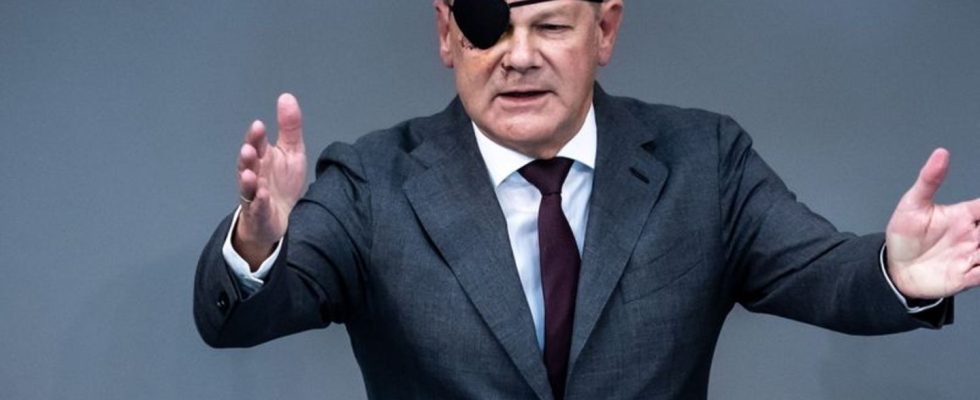federal government
“Germany Pact”: States hold the federal government accountable
Chancellor Olaf Scholz (SPD) has proposed a “Germany Pact” to the federal states, municipalities and the opposition, with the exception of the AfD. photo
© Michael Kappeler/dpa
Who wants to say no when the Chancellor calls for us to work together to make the country fit for the future? Not the state heads of government, nor the largest opposition party.
The 16 countries want them Hold the Federal Government accountable for the “Germany Pact” proposed by Chancellor Olaf Scholz (SPD).
“The states are ready to cooperate in any way to make Germany faster, and have been for a long time,” said North Rhine-Westphalia’s Prime Minister Hendrik Wüst (CDU) on Thursday at the end of the Prime Minister’s Conference in Brussels.
“But as a basis for this we need not just an announcement, an expression of opinion from the Chancellor, but a clear position from the entire federal government. If that is available, we can come together immediately and work out an agreement.”
Scholz invites Merz to talk
Shortly after his advance, the Chancellor approached opposition leader Friedrich Merz and invited him to a conversation. A corresponding report from the “Rheinische Post” was confirmed to the German Press Agency on Thursday from government circles. Merz himself did not want to comment when asked. However, he had previously expressed his willingness to “go along with sensible suggestions” to broadcaster RTL.
On Wednesday in the Bundestag, Scholz called for a national effort to modernize Germany. His appeal was aimed at states and municipalities as well as the opposition, with the exception of the AfD. He named the acceleration of approval procedures, the digitization of administration and support for companies as key points. The immigration of skilled workers from abroad should be further promoted.
However, a so-called lightning briefing by Merz’s management and planning staff came to the conclusion that Scholz had primarily brought together what was known. “All of the proposals have already been communicated earlier. Many of the projects mentioned have been delayed by the federal government for months,” says the analysis, which is available to the German Press Agency in Berlin.
Demand for concrete measures
The reaction on the state side was similar. It has been seen too often that agreements reached in the Prime Minister’s Conference end up waiting for implementation across the entire federal government, said Prime Minister Wüst. “What is required now is not announcements and big words, but rather action, speed instead of tactics.”
The CDU politician cited Scholz’s proposed acceleration of planning as an example. “Things have been in the pipeline for a long time.” The states’ proposals have been available since last year. “No response for months, valuable time was wasted.”
The Association of Cities and Municipalities is also missing new approaches from Scholz. Everyone will sign everything he said, said managing director Gerd Landsberg on WDR on Thursday. “But you have to be honest, this is old wine in new bottles.”
Union parliamentary group vice-president Jens Spahn spoke in the Bundestag of a “bonsai package” and said: “This is at best a PR stunt, just new packaging, but not new policy.” The federal government should present concrete measures.
Actions should follow announcements
Lower Saxony’s Prime Minister Stephan Weil (SPD) emphasized that agreement would be reached quickly on accelerating infrastructure projects. “The countries are really in the starting blocks.” For other points you have to ask again what is meant. Overall, there is complete agreement on the analysis. “Well, we are too complicated in Germany, we are too slow and in the end we are too expensive. So, we have to become simpler, we have to become faster and by the way we will also be cheaper.”
Approval came from the Confederation of German Employers’ Associations (BDA). “With the announced “Germany Pact”, the federal government is finally waking up,” said its President Rainer Dulger in the “Rheinische Post”. The traffic light government has overlooked digitalization for too long and stuck to bureaucratic hurdles for the economy and society. He urged speed: “Announcements are not actions.”
Saxony’s Prime Minister Michael Kretschmer (CDU) emphasized with regard to Scholz’s initiative: “We should get involved.” Out of civic responsibility, one should say yes to such discussions and not set any preconditions, he said in the ARD “Tagesthemen”. Schleswig-Holstein’s Prime Minister Daniel Günther (CDU) said: “Now it must not just be about big words, I expect that the Chancellor will follow his announcements with action. The federal states are ready.”

